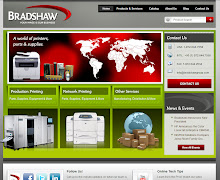Have you ever wondered what MPS actually means? I guess by definition it stands for Managed Print Services, but does anyone really know what it means to manage print? Seems like an odd statement doesn’t it? What’s different about MPS than traditional service contracts? Why would an end-user want to switch from their current service agreement to an MPS program? It’s been my experience that life has more questions than answers, but since we’re asking so many questions, let’s see if we can find a few answers so we all feel better. Feel free to disagree as you see fit, but here goes… Brace yourself…MPS – when it’s all said and done – is a very high tech, sophisticated way to sell toner – mostly compatible toner. There, I said it. Since I’m trying to write a blog and not a novel, here’s a short class on how MPS works:
A service company will convince an end user that they will save on their printing costs by switching their fleet of printers to certain refurbished HP models that will perform better. Keep in mind, this will also be less expensive for the service company to maintain. The printers will be monitored by a device (web based, or on the customer’s network) proactively, enabling the service company to replace toners, perform preventative maintenance, etc. before the customer knows anything is wrong. In return, this keeps their customer’s down time to a minimum and improves productivity. Of course, the biggest part of the deal to the service company will be that they supply their toner as part of the deal. The customer will most likely pay for this service based on the number of pages they actually print. So when it’s all said and done, the end user saves money and the service company makes more money. Not a bad deal all the way around.
What does all of this mean you ask? Well to us at Bradshaw, it means we’re selling more refurbished printers than ever before. In fact, refurbished printers have been the fastest growing piece of our business for the past 2 years. So if you are an MPS provider, that means you need a source for quality refurbished printers and parts. That means you need Bradshaw…
Class dismissed!
-Brett





